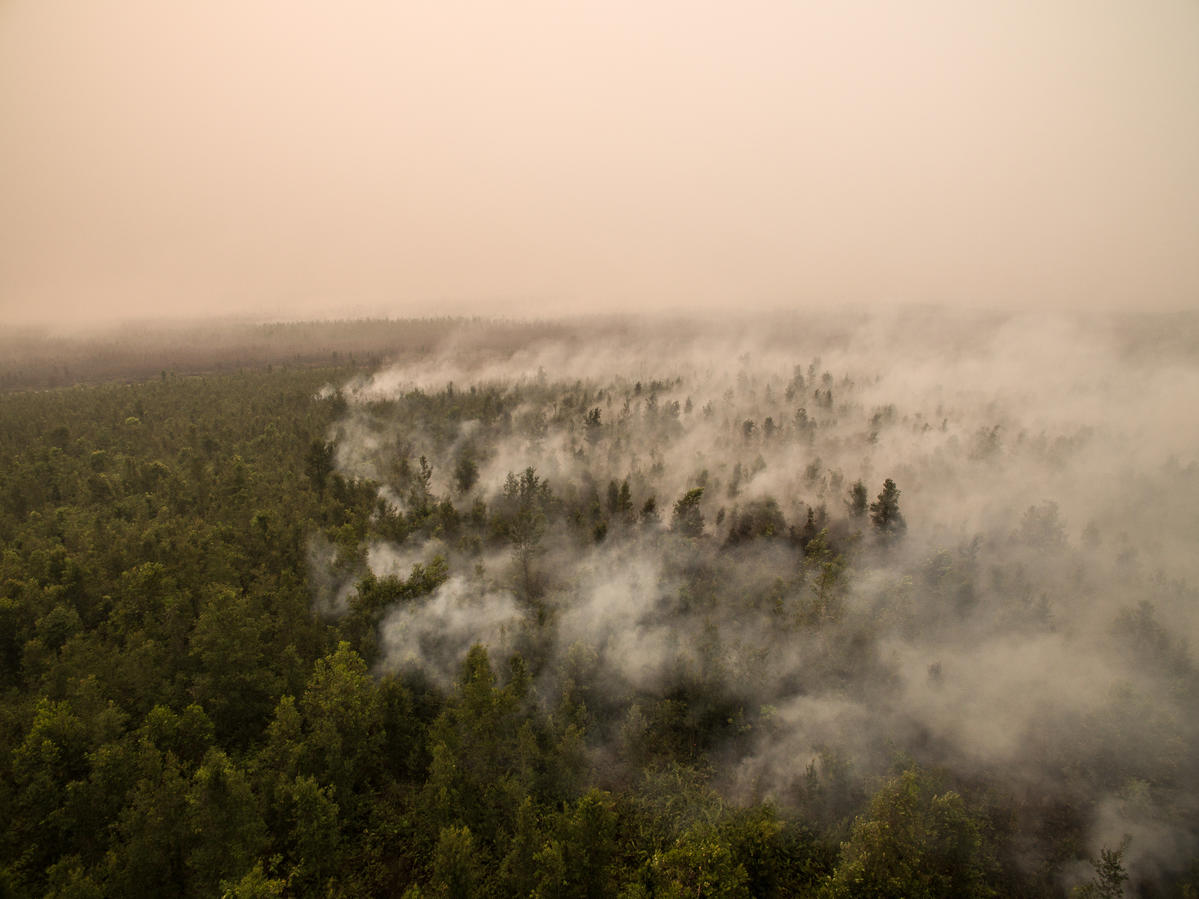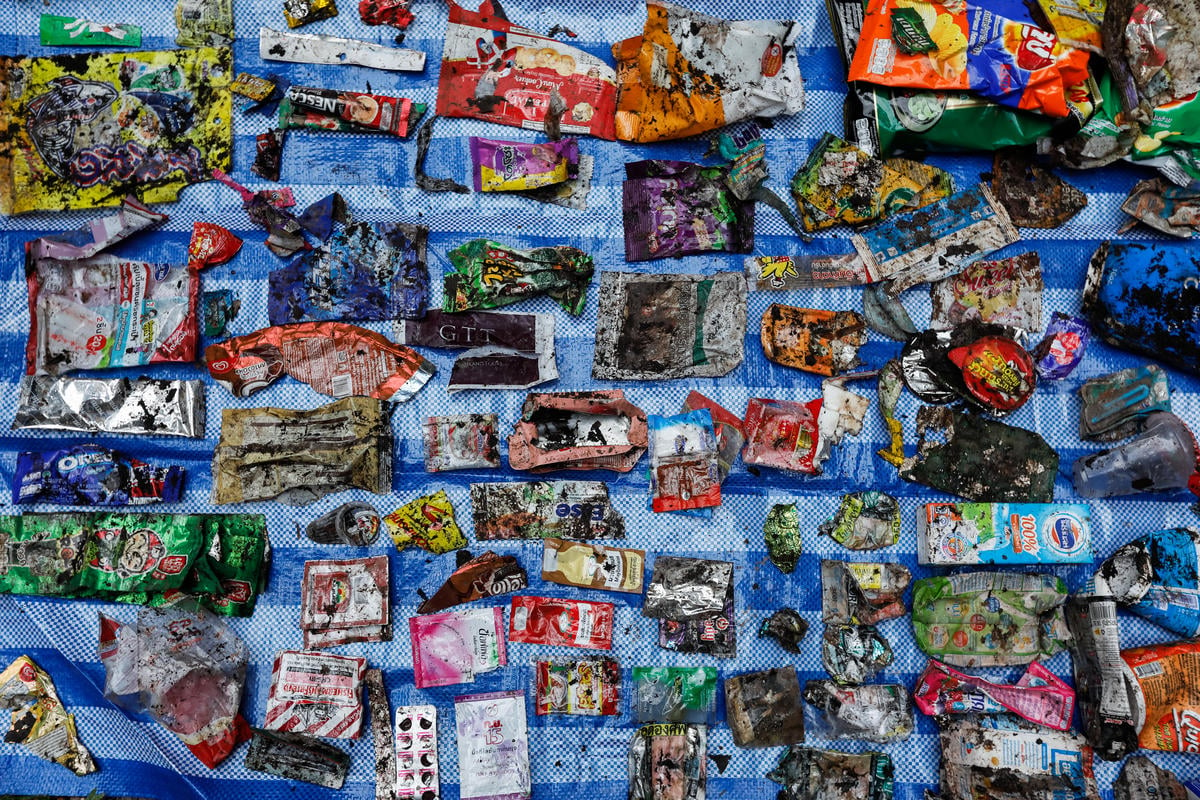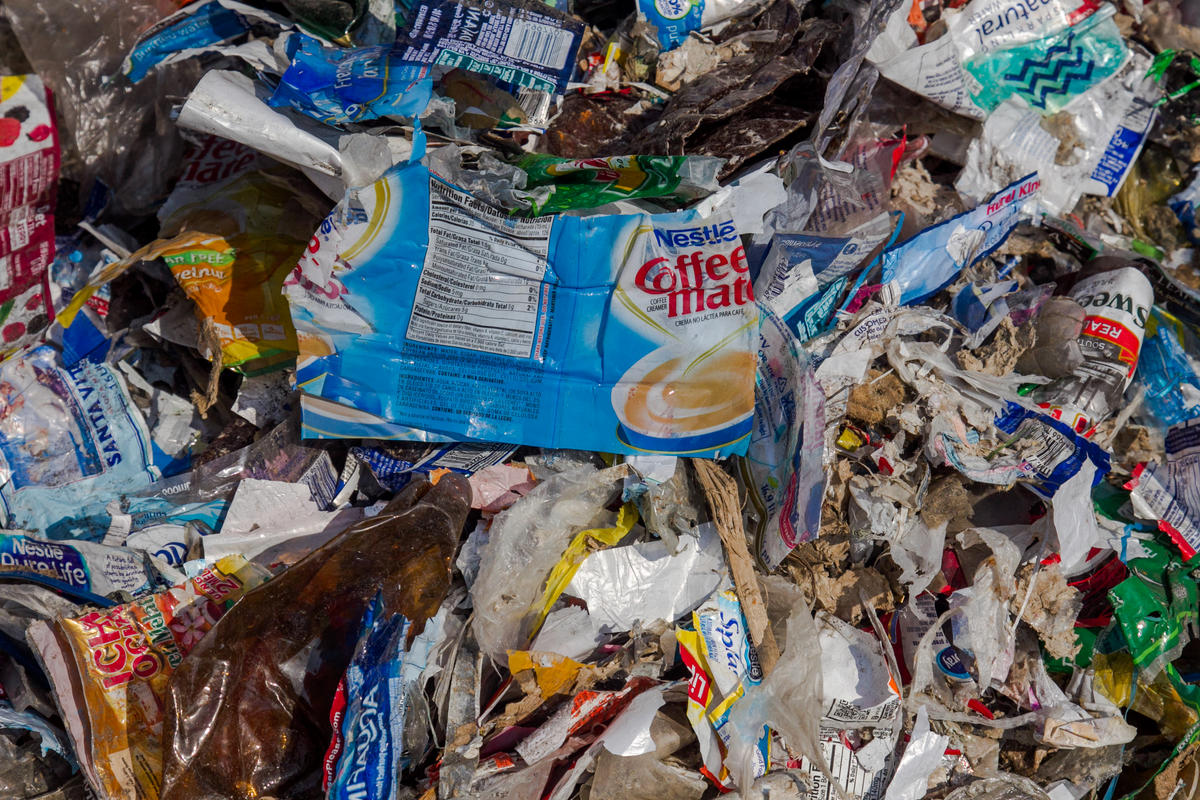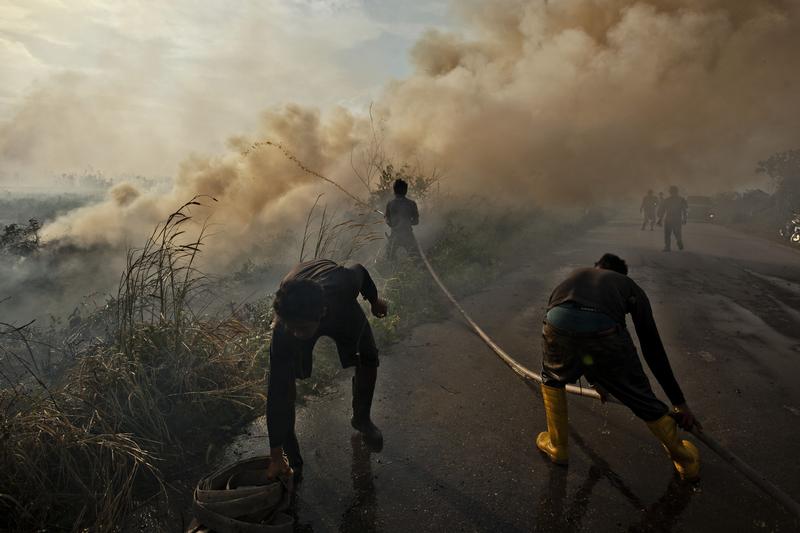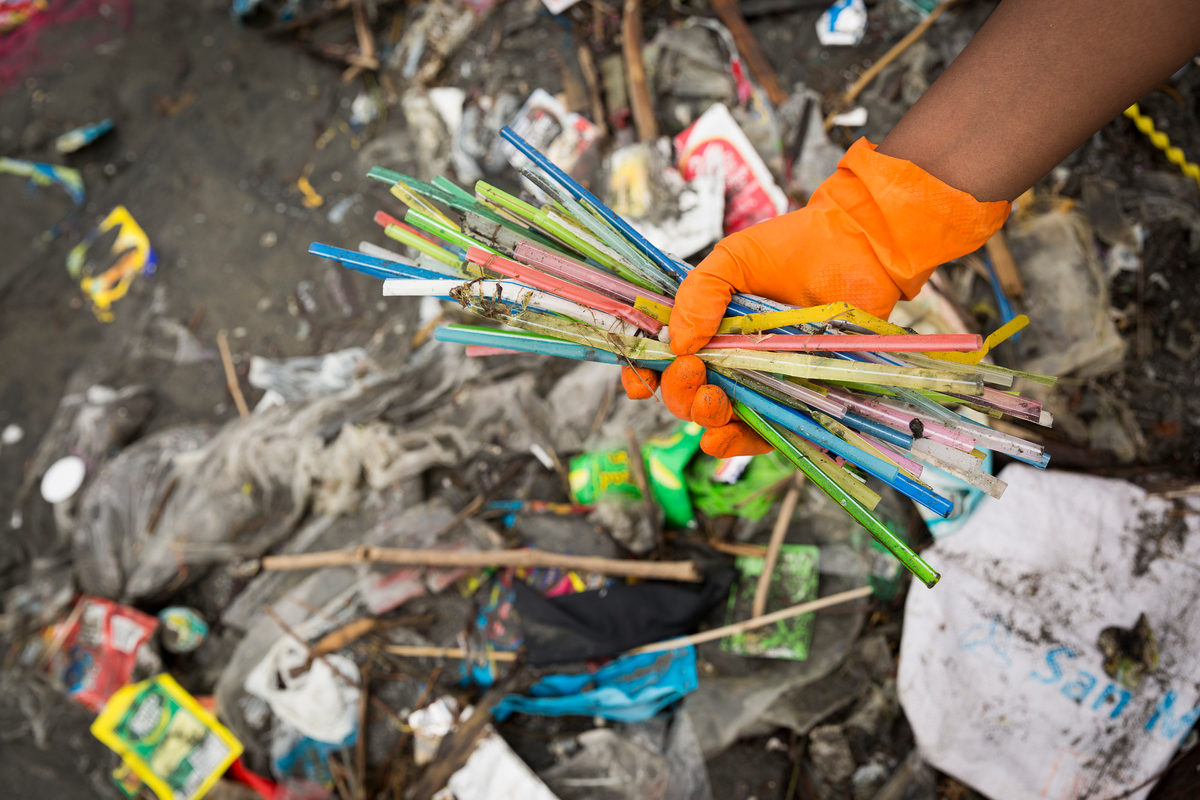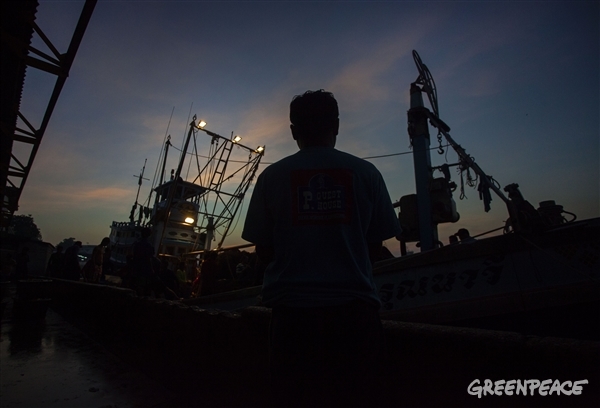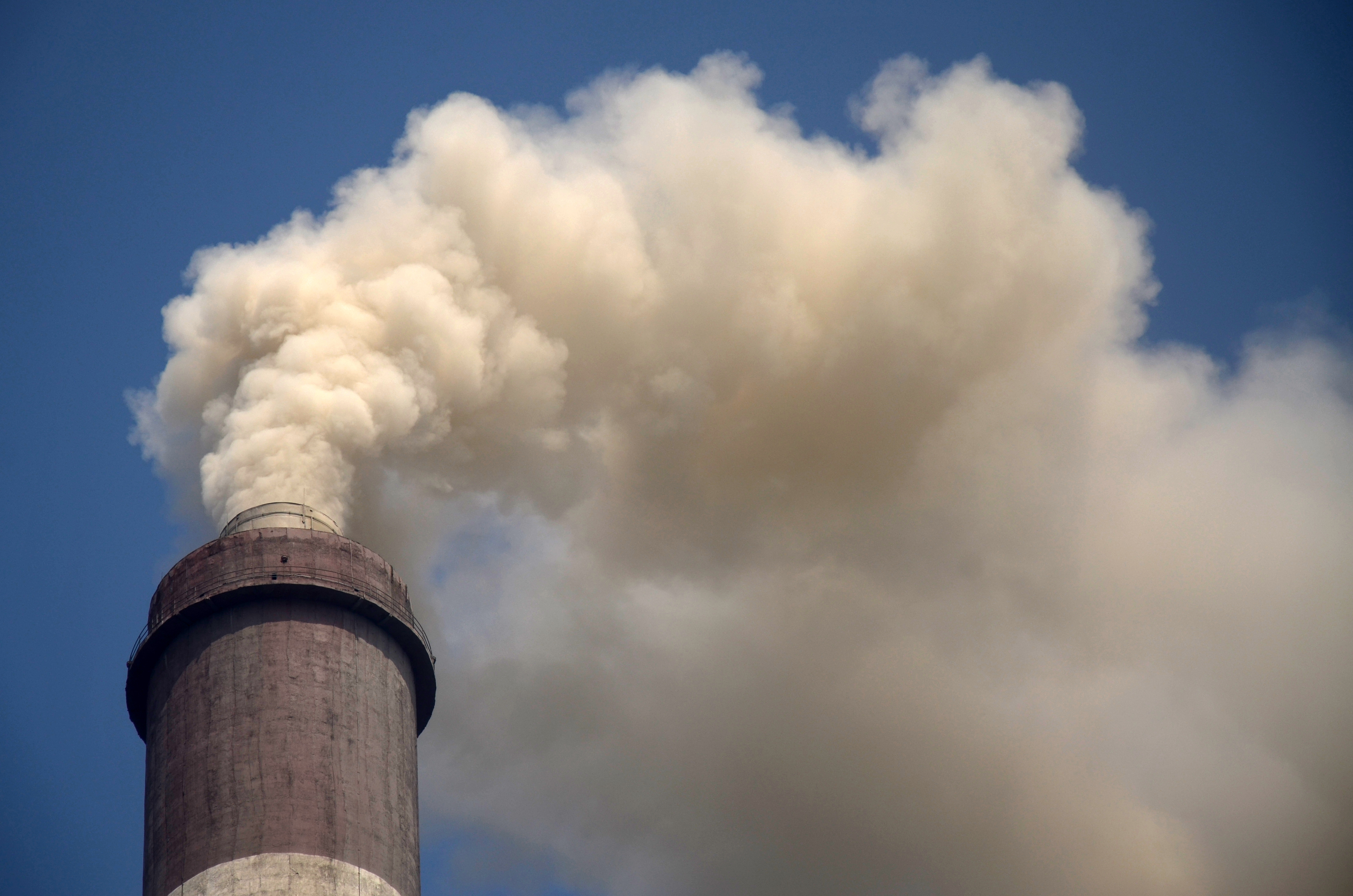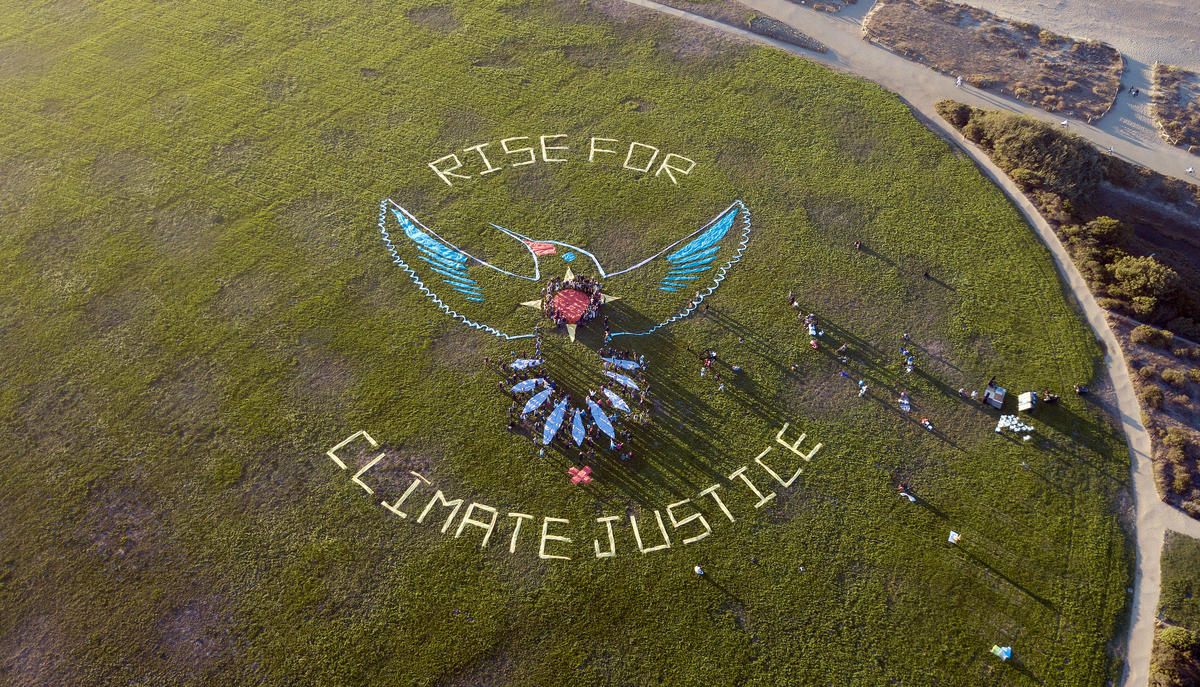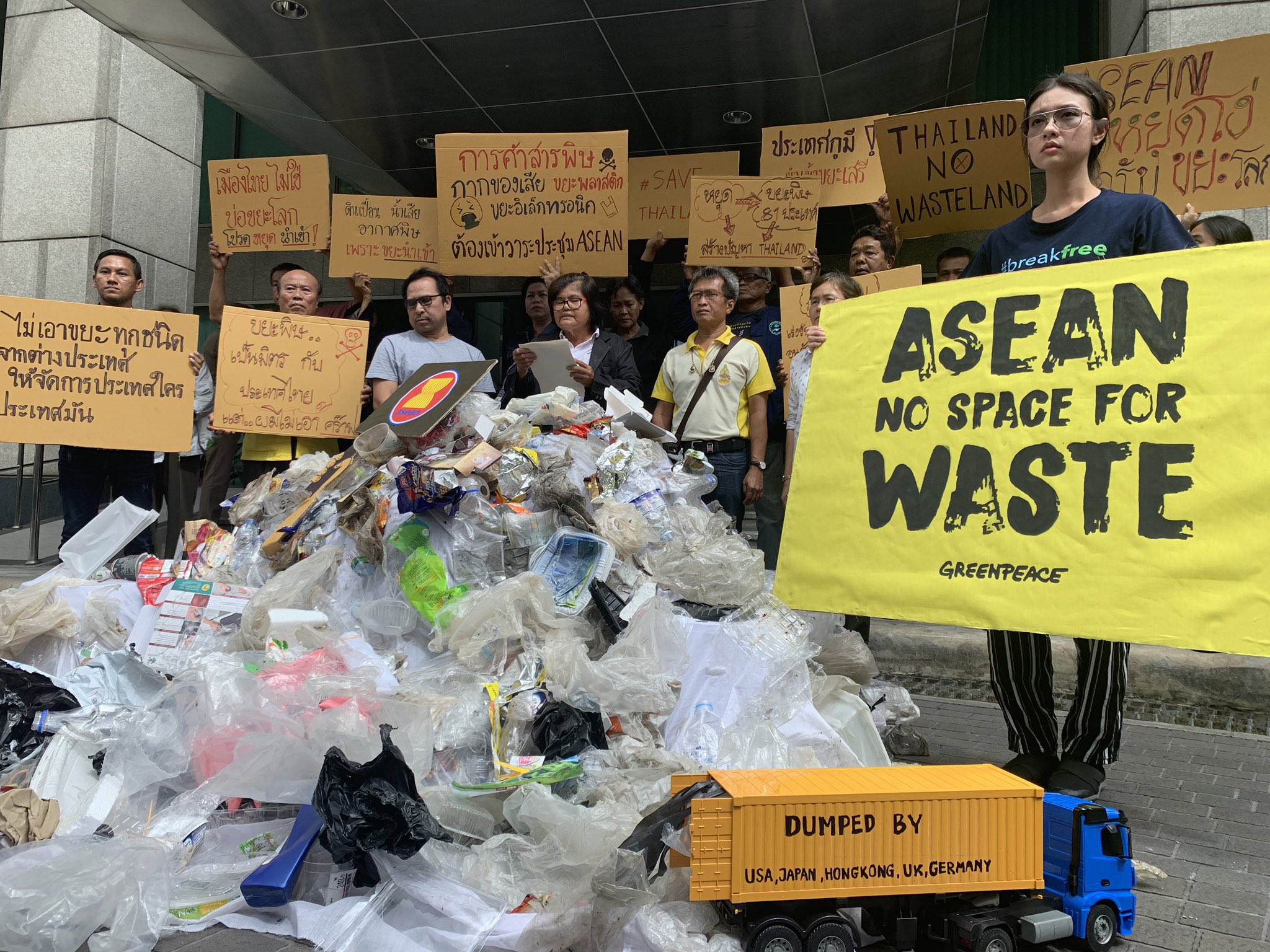-
Top consumer companies’ palm oil sustainability claims go up in flames
Unilever, Mondelez, Nestle, and P&G are each linked to up to 10,000 fire hotspots, as they buy from palm oil producer groups with the highest numbers of fire hotpots in 2019. The palm oil traders Wilmar, Cargill, Musim Mas, and Golden-Agri Resources (GAR) have extensive links to this year’s fires in Indonesia and together supply…
-
CP and Coca-Cola among worst offenders for plastic pollution in Thailand based on Greenpeace report
This report provides more evidence of how corporations have greatly contributed to the plastic crisis that we find ourselves in. Their continued reliance on single-use plastic packaging translates to more throwaway plastic into the environment.
-
Greenpeace report uncovers how top brands fool consumers with ‘false solutions’ to plastic pollution
The report, titled Throwing Away the Future: How Companies Still Have It Wrong on Plastic Pollution "Solutions,’”[1] shows how multinational companies, such as Nestlé, Unilever, PepsiCo, and Procter & Gamble, continue to harm the environment by using paper and crops-based bioplastics, which cause deforestation and threaten food security. Moreover, chemical recycling offers false hopes and lock in demand…
-
Palm oil and pulp companies with most burned land go unpunished as Indonesian forest fires rage
Despite the ongoing Indonesian forest fire crisis, no serious civil or administrative sanctions have been given to the ten palm oil companies with the largest areas of burned land from 2015 to 2018, new Greenpeace Indonesia mapping analysis revealed. The Indonesian government has also not revoked a single palm oil licence due to forest fires.
-
Communities and Greenpeace volunteers clean up beach and conduct plastic brand audit in Songkhla
On International Coastal Cleanup Day, around 60 volunteers from the Songkhla Forum, Beach for Life, and Greenpeace together cleaned up the beach at Laem Son On in Songkhla province.
-
We must put an end to modern-day slavery at sea
With the ever growing demand for seafood, commercial fishing vessels need to work overtime and catch as much as they can, whenever they can. For such a labor-intensive business, you would need a lot of man-power. Men from Cambodia, Myanmar, Thailand, Indonesia and the Philippines end up working on these ships. For most, their freedom…
-
Japan funds toxic coal plants abroad emitting 13-40 times more pollution than domestic plants – Greenpeace analysis
The Japanese Government and its public finance agencies JBIC, JICA, NEXI are exporting pollution to other countries by funding coal-fired power plants abroad, that emit far more toxic air pollutants than would be allowed in Japan.
-
What does climate change have to do with human rights?
When the Universal Declaration of Human Rights was created in 1948, it was done so to hold firm to the highest of ideals, a set of entitlements that allow all…
-
Why waste trade should be on the ASEAN summit agenda
Leaders from the 10 member nations that make up the Association of Southeast Asian Nations (ASEAN) are in Bangkok this week for another round of high level meetings to talk…
-
ASEAN leaders welcomed by “mountain of trash” and calls to ban plastic and e-waste imports
Activists holding banners saying ‘No Space for Waste’ unveiled the spectacle during a protest by environmental groups, including Greenpeace, and community representatives from across Thailand outside the Ministry of Foreign Affairs of Thailand - which has been chosen as the ASEAN-National Secretariat - a major focal point during this week’s talks.

